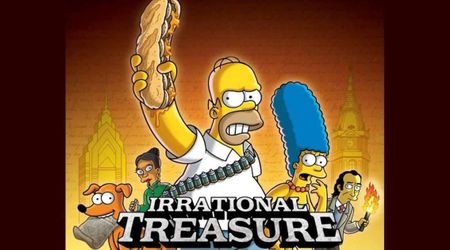'Devs' Finale sees Lily find contentment inside a simulation that contradicts the free will idea of the show

Spoilers for the ‘Devs’ Finale
The finale of Alex Garland’s miniseries ‘Devs’ ended with the deaths of Lily Chan (Sonoya Mizuno) and Forest (Nick Offerman) and their subsequent reanimation in a simulated world as the simulacra of their former selves, based on their memories and decisions and actions up until the point of fatality. Forest, in this simulation, tells Lily that they were in paradise (of some sort) where they were now free to choose their own paths, and live a fulfilling life.
The show’s creator told TV Guide, in the aftermath of the episode, “Is it a happy ending? For me it is. It's not just the free will aspect. It's not that. It's actually about love. In this very, very strange world, the underlying physics gives rise to complicated philosophical problems."
Garland added, "But we have to live in it, and there's a huge dissonance often between the way we intuitively think the world runs or the way in which we are overtly told that the world runs, in comparison to how it really runs. And we bump up against these things a lot, and it's difficult, and it's disturbing, and it unsettles people...Through it all, what we end up with is love... It's love of friendships and romance and parenthood, in the midst of all these incredibly complicated and sometimes disturbing things, that is what we end up being.”
But is it really a happy ending? There are many factors to consider and the least of which is a problem that was addressed in the finale of a different series but that was as philosophical as ‘Devs’. Michael Schur’s ‘The Good Place’ explored the concept of the afterlife and in the quote-unquote heaven inside the show’s universe, no one was really happy because of one, no lack of happiness, and two, no lack of time. Those residing in heaven had turned into happiness zombies, who did not function and think and feel joy anymore.
The question worth asking for ‘Devs’ then is: Is Lily’s life infinite inside this simulation and if that’s the case, then how is she likely to not turn into a happiness zombie? After all, the simulation where Lily is happy and chooses Jaime (Jin Ha) is an idea that’s somewhat similar to the ‘Black Mirror’ chapter called ‘San Junipero’. There is an implication of an infinite life within the simulation. You mustn’t forget that Katie (Alison Pill) wanted the simulation to never be shut down, once again, implying an infinite life.
But let’s ignore that for a second and consider the larger problem here. Lily now knows that there exists a multiverse and in most of these parallel universes, she’d not be experiencing paradise. She would be experiencing hell. How does that knowledge not mess with Lily’s head? How can she remain happy knowing that in infinity-minus-one universes, she’s not just unhappy, but perhaps running through the same hoops that she did in the prime universe? The fact that such a thing goes against the character of Lily that has been set up so far is pretty disturbing.
Finally, the most important one of all, does Lily’s exhibition of the supposed idea of free will in the prime universe imply that free will is a possibility for her? It really doesn’t as much as anyone would love to believe that. The exercise of free will in the finale was in the form of Lily throwing the gun away. But that doesn’t take into question a very fundamental aspect: what if the simulation projected a different Lily, from a different universe, where all her life choices were the same but for one -- the last one. If there are an infinite number of parallel universes, then it is possible that this iteration of Lily exists in one of them. If that is the case, then even as a simulacrum, Lily is bound by the cold grip of causal determinism. She still isn’t free.
So, does this ending count as a happy one? I would say, no.










